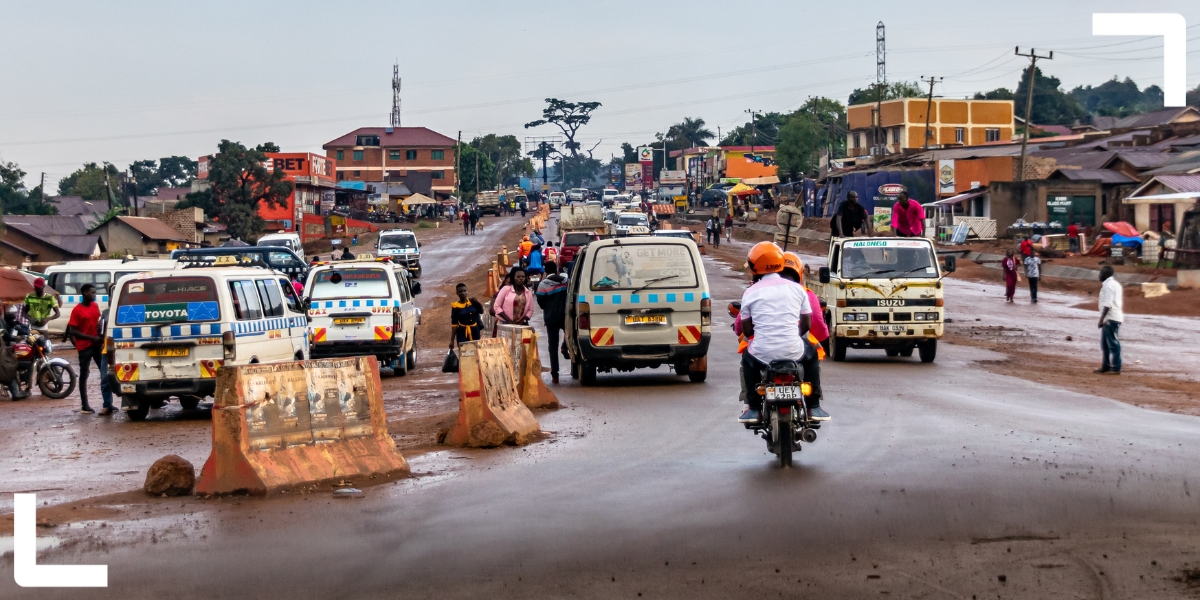ACRC has published new research, exploring land and connectivity in six African cities: Accra (Ghana), Bukavu (DRC), Kampala (Uganda), Harare (Zimbabwe), Maiduguri (Nigeria) and Mogadishu (Somalia).
Urban land is a crucial economic, environmental and social resource in African cities. It is also highly politicised, frequently becoming a source of conflict and a factor in growing urban inequalities. Often dysfunctional and under-resourced systems of land administration have to engage with highly inequitable colonial legacies, widespread speculation and forms of elite capture, placing huge pressures on the sector.
Authored by Tom Goodfellow (University of Sheffield), Abdifatah Tahir (University of Sheffield), Liza Rose Cirolia (University of Cape Town) and Ransford Acheampong (The University of Manchester) in collaboration with city-based researchers, this report discusses findings from a six-city comparative study. The research explores how the nexus between land and connective infrastructure is shaping the way land is valued, used, transacted, fought over, managed and taxed in African cities.
Its main focus is on how land challenges intersect with connectivity – with the development of transport and mobility infrastructures, and with digital infrastructures that can change the way land is used, valued, exchanged and managed. Exploring what this can reveal about the realities of land value creation, extraction and capture – as well as the technopolitical dynamics of land administration – the report presents policy implications for urban reform.
Research approach
The authors conducted a selective review of literature on urban land and infrastructure in African cities. Six largely qualitative city studies were produced, each led by an expert with a long track record of work in the specific city. These studies draw on secondary sources (such as policies, government documents, reports, existing studies), interviews with key stakeholders (such as officials, land brokers, community representatives and developers), and the authors’ extensive experience and observations in the sectors. The research in each city covered a wide range of issues, around three central themes:
- Land tenure, administration, management and conflict.
- Taxation, land value and value capture.
- Infrastructures and networks related to transport, mobility and digital connectivity.
In addition, a series of cross-city workshops brought together city domain researchers and the core team, to co-develop the framework and co-integrate the findings.
The report draws together crosscutting findings, considers some of the ways in which urban land and connectivity sits within the political settlement, and finally reflects on the findings and their interlinkages, presenting implications for urban reform and for future research priorities.
Key findings
- Land values are driven by multiple factors often overlooked in conventional property development and value capture models.
- Many societal actors are involved in capturing the rising value of urban land, including various forms of brokers.
- Urban growth and residential development often proceed particularly rapidly in areas without connective infrastructure – in contrast to planning assumptions that urban growth is stimulated by increased connectivity.
- Systems for property taxation vary massively, making cross-city learning challenging.
- Digital innovations feature heavily in land systems and can make a difference to “low-hanging fruit” in terms of land registration and taxation.
- Three types of politics – land, territorial and institutional – are evident throughout the domain, with their relative weight differing, depending on the nature of the political settlement.
- Different forms of land politics coexist, but some dominate in particular cases.
Implications for urban reform
- Reform approaches may need to work more on building government legitimacy versus state capacity, depending on which individuals and agencies are seen as the primary “land-grabbers”.
- The varied balance between land politics, territorial politics and institutional politics in different cities has implications for reform prospects.
- Finding ways to engage with land brokers and other intermediaries will be crucial to reform efforts.
- Policymakers should maintain awareness that technical interventions can mask or even worsen existing political and institutional conflicts.
Header photo credit: Andi Edwards / iStock. A road in Kampala, Uganda in the wet season.
The African Cities blog is licensed under Creative Commons Attribution-NonCommercial-NoDerivatives 4.0 International (CC BY-NC-ND 4.0), which means you are welcome to repost this content as long as you provide full credit and a link to this original post.


